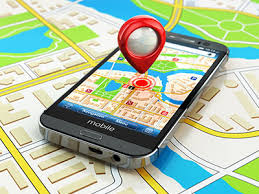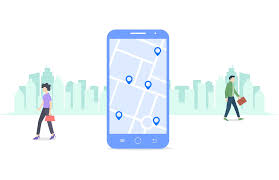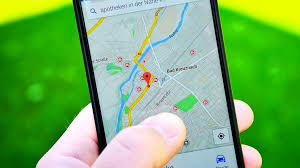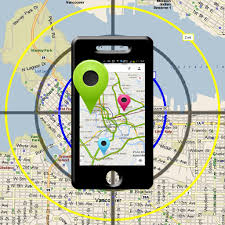In an era defined by mobility and connectivity, location tracking has evolved from a mere convenience into an indispensable tool for both individuals and organizations. Whether you’re keeping tabs on loved ones, navigating unfamiliar terrain, managing a fleet of vehicles, or enhancing customer experiences, location tracker apps have emerged as powerful digital allies. This article explores the world of location tracker apps — how they work, their features, benefits, privacy implications, and the future of this rapidly advancing technology.

Table of Contents
What Is a Location Tracker App?
A location tracker app is a software application that utilizes Global Positioning System (GPS), Wi-Fi, mobile networks, or Bluetooth to determine the real-time location of a device. It can be installed on smartphones, tablets, wearable devices, or even embedded in vehicles and specialized equipment. These apps collect geographic data and transmit it to the user or a monitoring system, often via cloud-based services.
These apps serve a wide range of purposes, from personal safety and navigation to business logistics and data analytics. The increasing demand for real-time location data has led to a surge in their adoption across various sectors.
How Location Tracker Apps Work
At the core of a location tracker app lies GPS technology, which communicates with satellites to pinpoint a device’s location. Most modern smartphones are equipped with GPS chips that, when combined with other data sources like cellular triangulation and Wi-Fi signals, provide highly accurate and real-time location tracking.
Here’s a breakdown of the key technologies involved:
- GPS (Global Positioning System): Offers precise location tracking via satellite communication.
- Cellular Network Tracking: Uses signal strengths and cell towers to estimate device position.
- Wi-Fi Positioning: Detects nearby Wi-Fi networks to refine location accuracy, especially indoors.
- Bluetooth and Beacons: Provides ultra-precise indoor tracking using short-range communication.
Most apps also use cloud services to store and process location data, which can be accessed by users from anywhere via a dashboard or mobile interface.
Key Features of Location Tracker Apps
1. Real-Time Location Monitoring
Users can view the live location of a device on a map. This is crucial for parents tracking children, logistics companies managing fleets, or friends coordinating meetups.
2. Geofencing
A geofence is a virtual boundary around a specific location. When a device enters or exits this area, the app triggers alerts. This is especially useful for parental control or monitoring employee movement.
3. Location History
The app logs previous locations, which can be used to analyze routes taken, time spent at locations, or identify unusual activity.
4. SOS and Emergency Features
Some apps include panic buttons or automated alerts that notify designated contacts in case of emergencies. This is a key feature for personal safety.
5. Battery Efficiency
Many location tracking apps are optimized to minimize battery consumption through smart data syncing, interval tracking, and low-power modes.
6. Multi-Device Support
Some advanced trackers allow multiple devices to be monitored under one account, making them ideal for families or businesses.
Popular Use Cases
1. Family Safety and Parental Control
Parents often use tracker apps to ensure the safety of their children, especially in urban or unfamiliar environments. Apps like Life360 or Find My Kids provide not only real-time tracking but also driving behavior analysis and emergency alerts.
2. Employee and Fleet Management
Businesses with mobile workforces rely on location tracking to improve productivity and accountability. Fleet managers can monitor delivery routes, optimize fuel usage, and ensure timely service.
3. Lost Device Recovery
Built-in apps like Apple’s Find My or Google’s Find My Device are widely used to locate lost or stolen phones, offering a critical security net.
4. Travel and Navigation
Apps can enhance navigation by providing turn-by-turn directions, points of interest, and trip history. Hikers, bikers, and adventurers also use trackers for route mapping and safety.
5. Asset Tracking
Beyond phones and people, location tracking is used in industrial and commercial settings to monitor equipment, packages, or vehicles in transit.

Advantages of Using Location Tracker Apps
1. Enhanced Safety
Tracker apps provide a layer of security by enabling users to stay connected with loved ones and receive alerts during emergencies.
2. Operational Efficiency
For businesses, tracking technology reduces downtime, improves logistics, and ensures accurate deliveries and service appointments.
3. Peace of Mind
Whether it’s knowing your child arrived at school safely or confirming that a vehicle is on its assigned route, location tracking provides reassurance.
4. Data-Driven Decision Making
Location data helps businesses and users make smarter decisions. It can highlight trends, inefficiencies, and opportunities for improvement.
5. Customization and Scalability
Modern location tracker apps offer a high degree of customization. Users can set up notifications, reports, or permissions based on their unique needs.
Privacy and Ethical Considerations
As with any technology that collects sensitive data, location tracker apps raise important privacy questions. The collection, storage, and sharing of location data must be handled with transparency and consent.
Key Privacy Concerns:
- Unauthorized Tracking: Apps must ensure that tracking is done only with the user’s knowledge and consent.
- Data Breaches: Location data is valuable and must be protected from cyber threats.
- Misuse of Information: Companies or individuals could potentially misuse location data for surveillance or control.
- Children’s Data: Apps tracking minors must comply with laws like COPPA (Children’s Online Privacy Protection Act) to ensure legal and ethical compliance.
To address these concerns, reputable apps implement strong encryption, user authentication, consent-based access, and transparent data policies.
Legal Frameworks Around Location Tracking
Laws surrounding location tracking vary by country and jurisdiction. Some of the most relevant regulations include:
- GDPR (Europe): Requires companies to get explicit user consent for data collection and processing.
- CCPA (California, USA): Grants users the right to know what data is collected and to request its deletion.
- ECPA (USA): Restricts the government and private entities from unauthorized access to electronic communications, including location data.
Users and developers must ensure that their apps comply with applicable local laws to avoid legal repercussions.
Challenges and Limitations
Despite their advantages, location tracker apps face several challenges:
- Battery Drain: Continuous tracking can reduce device battery life.
- Accuracy Issues: Dense urban areas or poor satellite signals can reduce location accuracy.
- Dependency on Connectivity: Without Wi-Fi or cellular data, many apps can’t transmit location data effectively.
- User Consent Complexity: Getting meaningful, informed consent from users is legally and ethically essential but not always straightforward.
The Future of Location Tracking
The future of location tracker apps looks promising, driven by innovations in technology, AI, and data analytics.
Emerging Trends:
- AI-Powered Insights: Predictive analytics could anticipate user behavior based on location trends.
- Integration with Smart Devices: Wearables, smart cars, and IoT devices will expand location tracking into new domains.
- Indoor Positioning Systems (IPS): Next-gen tracking will offer precise indoor location services for malls, airports, or industrial facilities.
- Augmented Reality (AR): Location data could be layered with AR for immersive navigation and experiences.
- Blockchain for Privacy: Decentralized data storage may offer a new model for secure and private tracking.
CLICK HERE TO OPEN

Choosing the Right Location Tracker App
When selecting a location tracker app, consider the following factors:
- Purpose: Is it for personal safety, business operations, or travel?
- Features: Look for real-time tracking, geofencing, history logs, and SOS features.
- Privacy Controls: Ensure the app offers robust privacy settings and complies with legal standards.
- User Interface: The app should be intuitive and easy to navigate.
- Compatibility: Verify that the app works across all necessary devices and platforms (iOS, Android, web).
- Cost: Many apps offer free versions, but advanced features may require a subscription.
Popular location tracker apps include Life360, Find My iPhone, Google Maps Timeline, GeoZilla, Glympse, and Bubbly for businesses.
Conclusion
Location tracker apps have become essential tools in a digitally connected world. They offer powerful capabilities for enhancing safety, improving efficiency, and staying informed. As technology evolves, these apps will only grow more intelligent and integrated into our daily lives.
However, with great power comes great responsibility. Developers must prioritize ethical practices, data protection, and user consent. Likewise, users should stay informed about the capabilities and limitations of these apps.
Whether you’re a parent watching over your child, a manager optimizing fleet routes, or a traveler exploring new places — location tracker apps are redefining how we experience movement and connection in the modern world.
Read more:https://blog.nfds.xyz/wp-admin/post.php?post=191&action=edit

